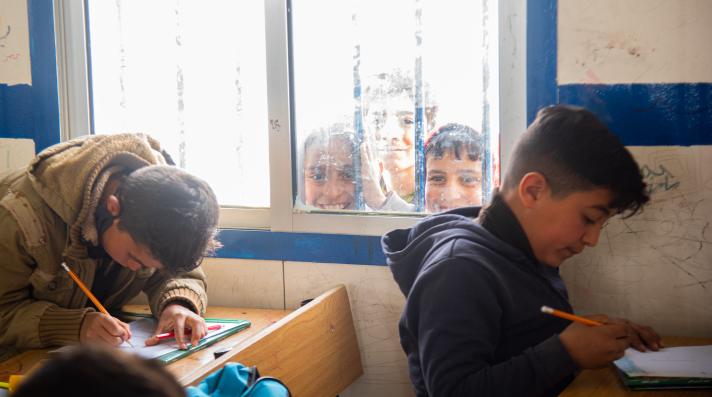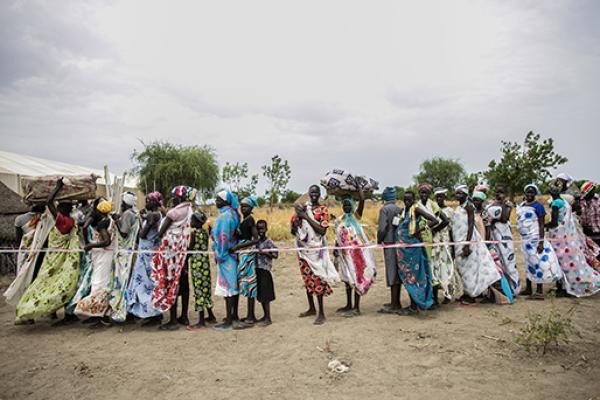In 2022, a staggering 108.4 million people were forced to flee their home. 35.3 million of them were refugees. They flee conflict, violence, human rights violations. They escape from persecution, disasters, and the impacts of climate change. They want safety and a better future.
But these are not just numbers. Behind these figures, there are real faces. People just like you. There are teachers, nurses, engineers, artists, or students. Older people and children. On World Refugee Day, we put the spotlight on their stories and how the EU’s humanitarian aid is supporting them.
The number of forcibly displaced people, including refugees, continue to rise every day.
What’s a refugee?
To fully understand these numbers, it is crucial to know the difference between a refugee, an asylum seeker, a migrant, and an internally displaced person.
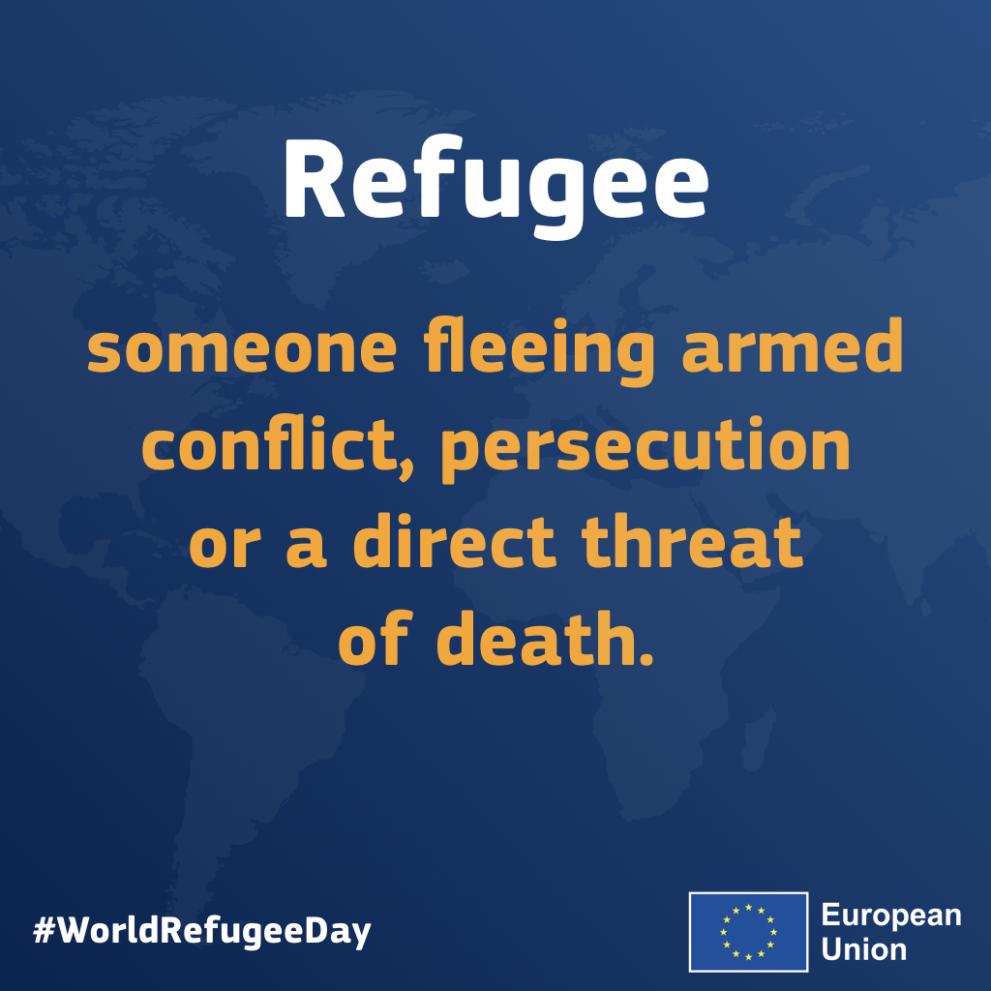 Refugee
RefugeeSomeone fleeing armed conflict, persecution or a direct threat or death.
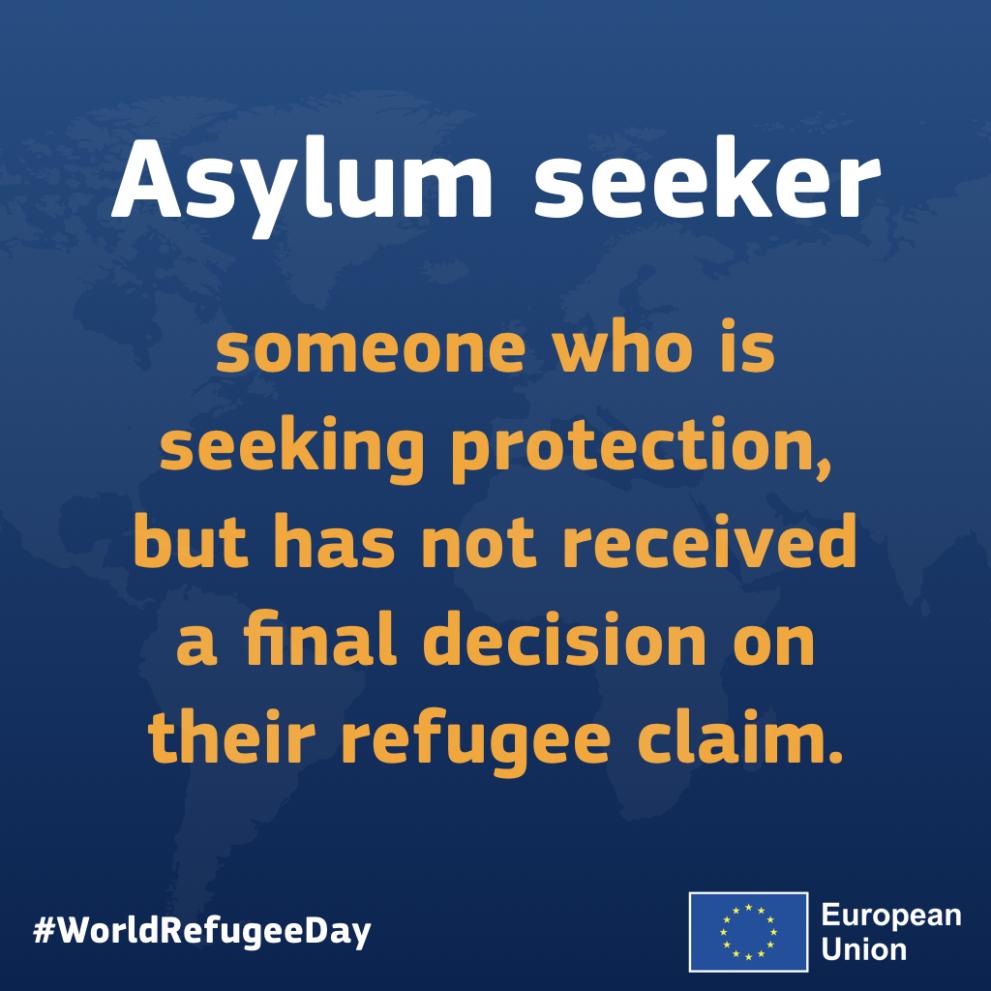 Asylum seeker
Asylum seekerSomeone who is seeking protection, but has not received a final decision on their refugee claim.
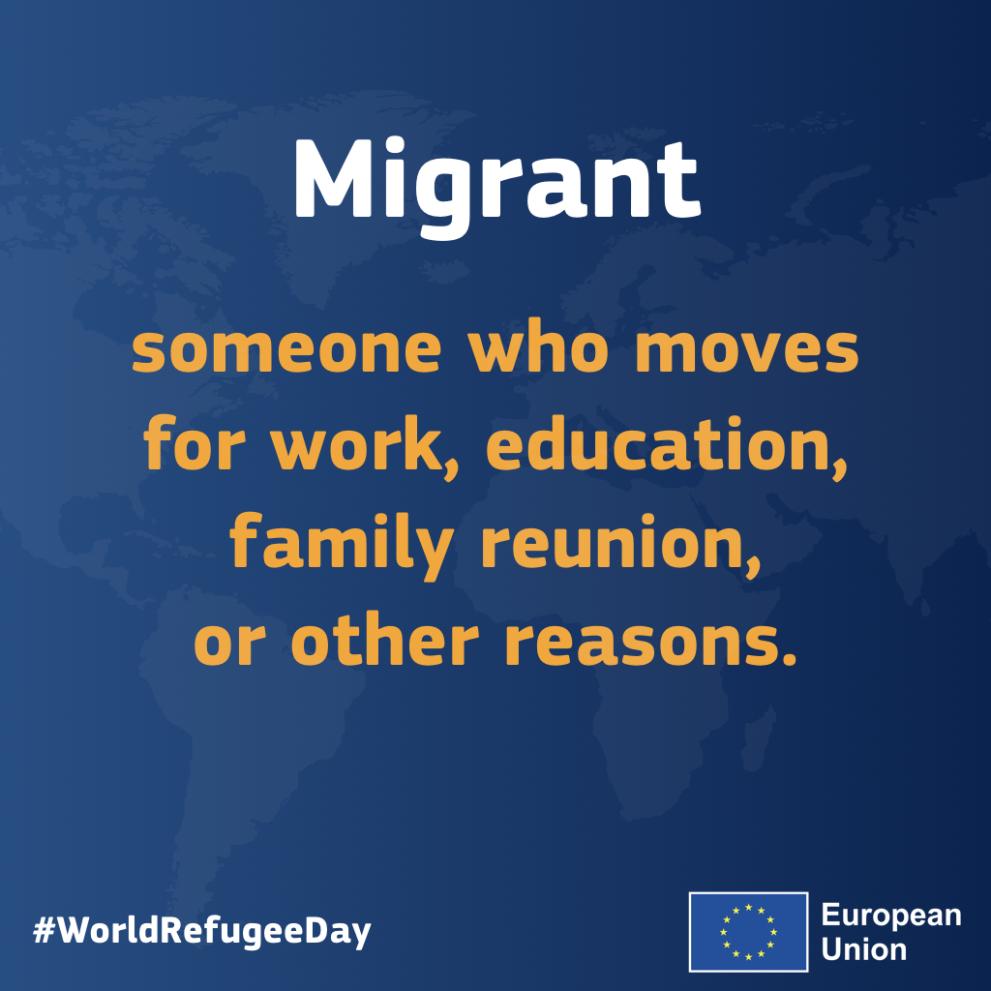 Migrant
MigrantSomeone who moves for work, education, family reunion, or other reasons.
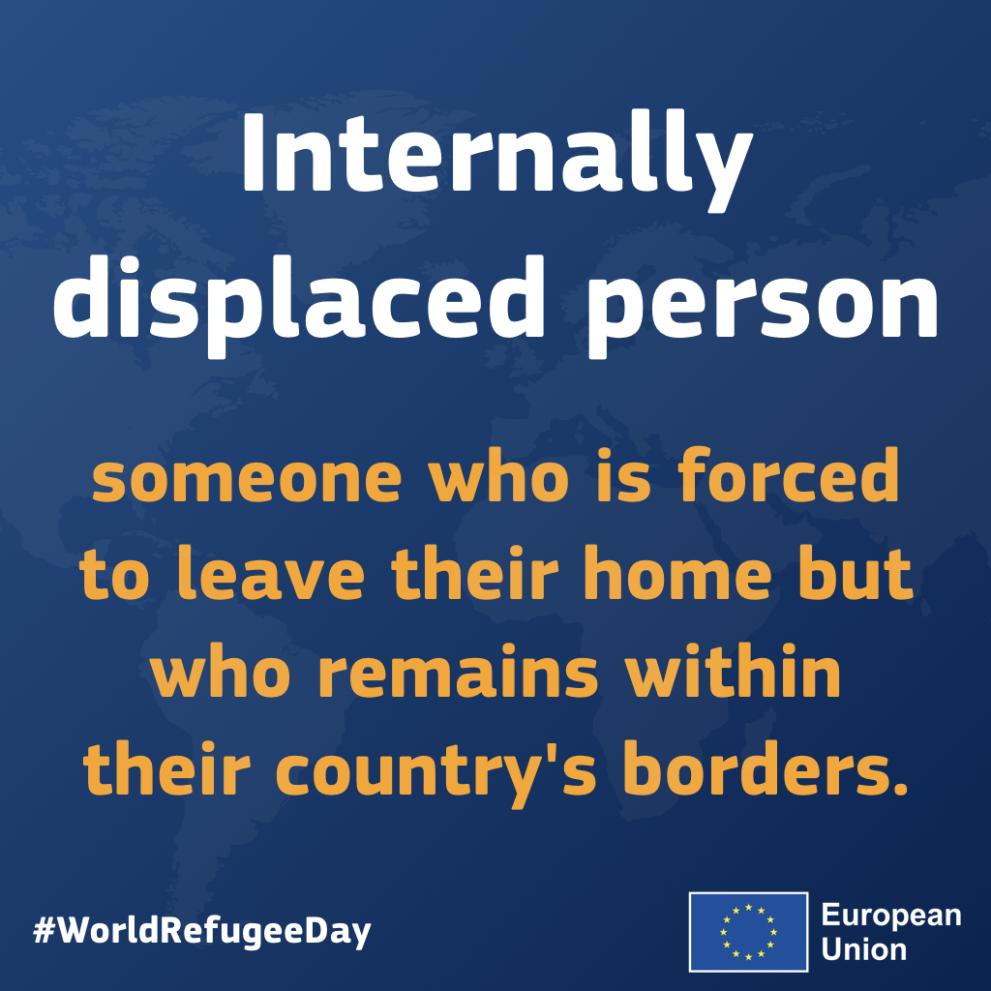 Internally displaced person
Internally displaced personSomeone who is forced to leave their home but who remains within their country’s borders.
The faces behind the numbers
The EU wants to shine a spotlight on the stories of refugees. Because, beyond the numbers, there are people with unwavering determination, bravery, and remarkable talent.
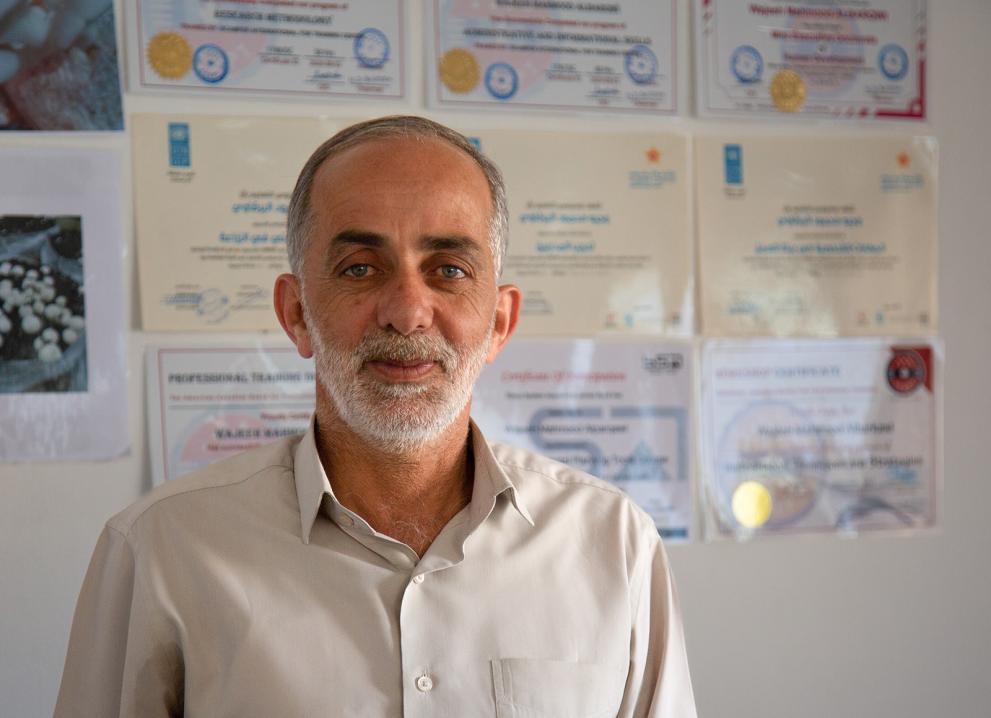 Wajeeh from Syria
Wajeeh from SyriaWajeeh, a Syrian refugee, enrolled in multiple courses to expand his skillset when he settled in Jordan. The EU’s humanitarian aid helped him obtain legal documents to stay and send his children to school. With strong resilience and a thirst for knowledge, he managed to start a mushroom business.
“I hold a doctorate from the University of Damascus. In Syria, I worked in both academia and trade. I began to develop my project and spread the word. In a year, we were able to market the idea across the city.”
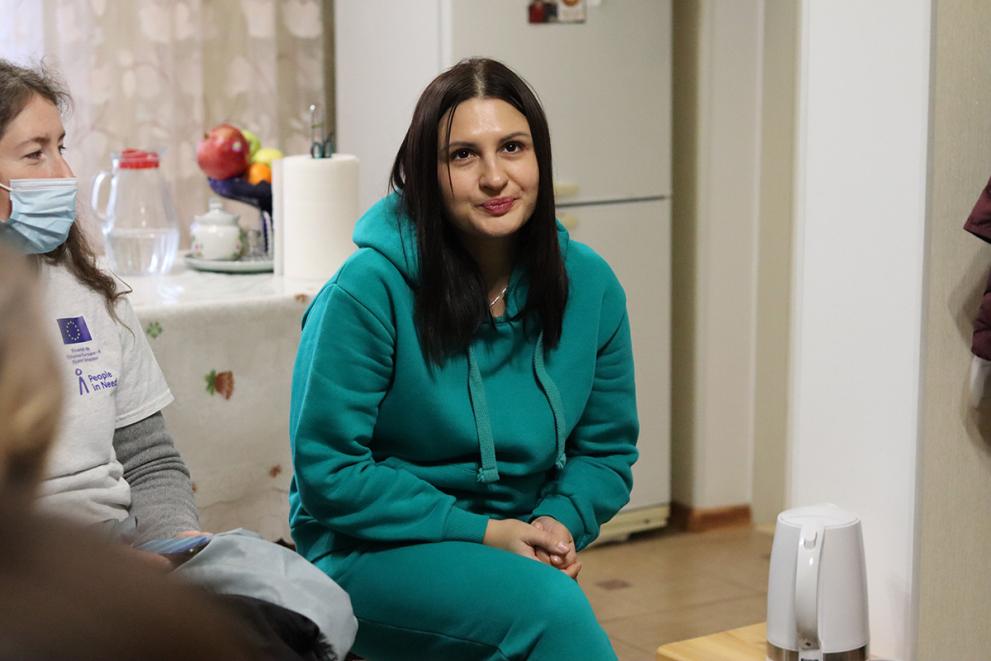 Lyudmilla from Ukraine
Lyudmilla from UkraineForced to flee her home in Mykolaiv, Lyudmilla and her 7-year-old daughter Irina found refuge in Moldova. Despite the warm welcome they received, she longs to one day return to Ukraine. Through cash assistance, the EU supports families in Moldova hosting refugees like her.
“I have never experienced this kind of pain. But it also changed my values and thought me to how appreciate life.”
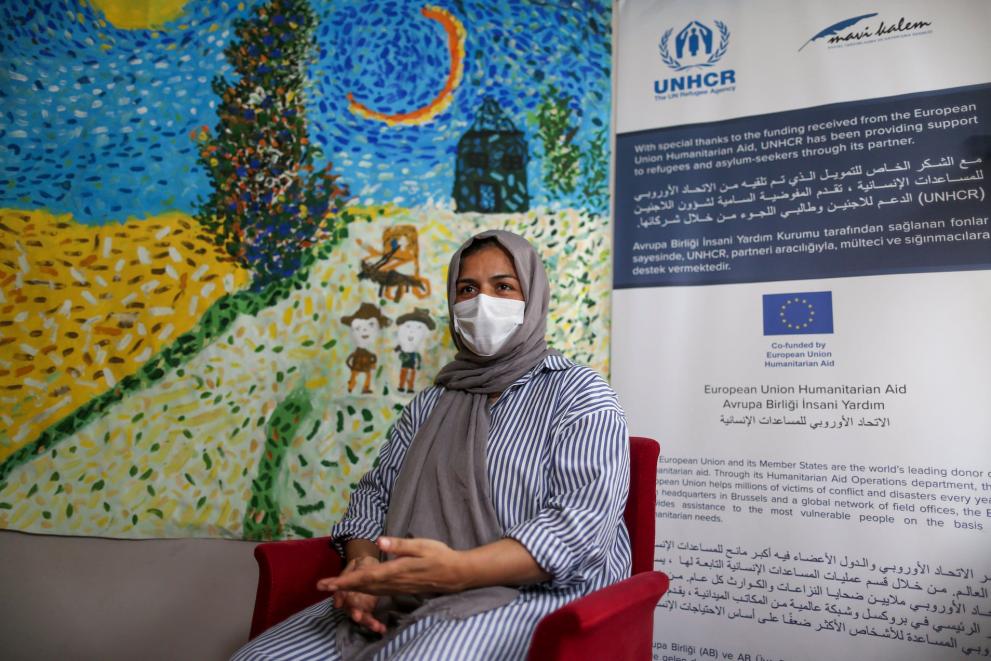 Nelofar from Afghanistan
Nelofar from AfghanistanNelofar lives in Istanbul with her husband and 5 children. Fearing persecution in their home country Afghanistan, she was forced to flee to Türkiye together with her family. EU humanitarian funding helped her tackle the challenges she encountered.
“I was working as an English teacher and was a well-respected member of my community. I miss the times where I could provide for my family.”
A day in the life of a refugee
Zaatari is the world’s largest camp for Syrian refugees and hosts nearly 81,000 people. Half of them are women, many of whom in need of protection and psychological support.
Fadwa is one of them. She has been living in the camp for 10 years. During this time, the camp has gone through changes that impacted the living conditions of refugees. Follow her throughout a day in the Zaatari camp and learn what the EU is doing to support refugees there.
Discover more stories
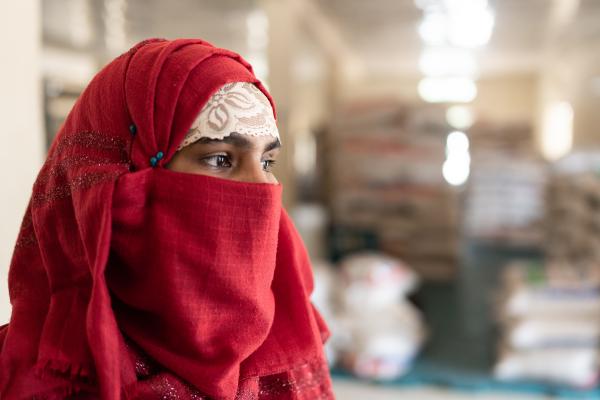
6 years into the Rohingya refugee crisis, nearly 1 million Rohingya remain stranded in Cox’s Bazar of Bangladesh, their plight far from over.
- Type
- Photo story
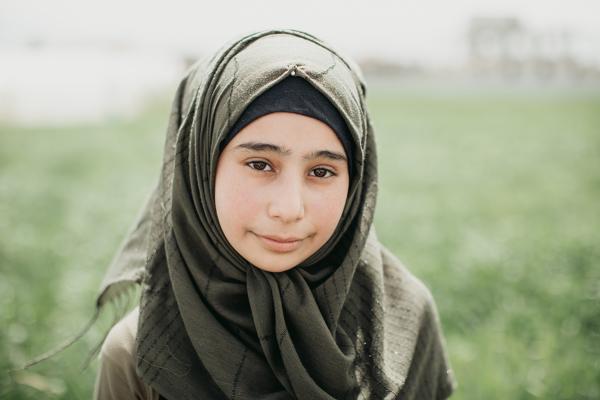
Rabouaa arrived in Lebanon from Aleppo when she was 6. COVID-19 confined her in a tent, but that did not stop her. This is her story.
- Type
- Photo story
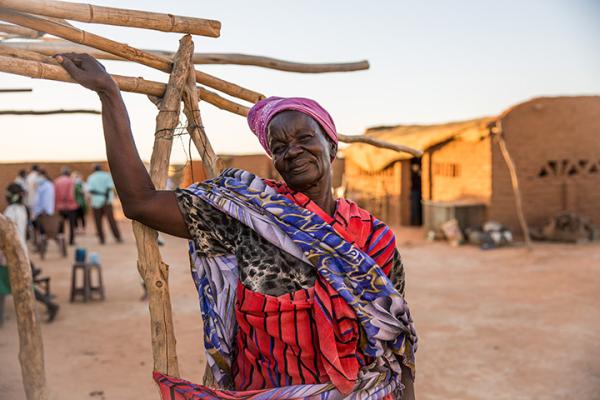
South Sudan is facing one of the world’s worst humanitarian crises, with thousands of people living in famine-like conditions. In addition, more than 2 million South Sudanese are living as refugees in neighbouring countries like Sudan.
- Type
- Field blog
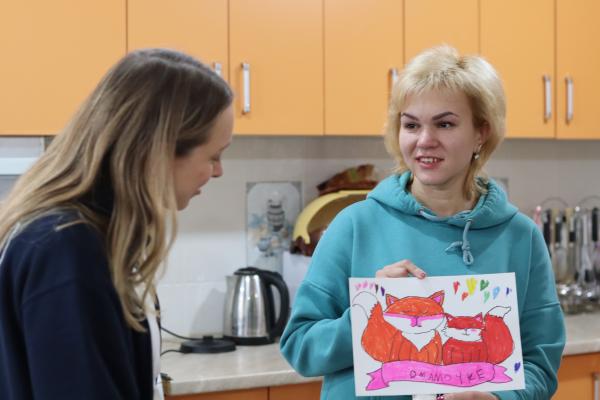
On the morning of Russia’s invasion of Ukraine on 24 February 2022, 34-year-old public servant Viktoriia from Dnipropetrovsk oblast went to work as on any other day.
- Type
- Field blog

